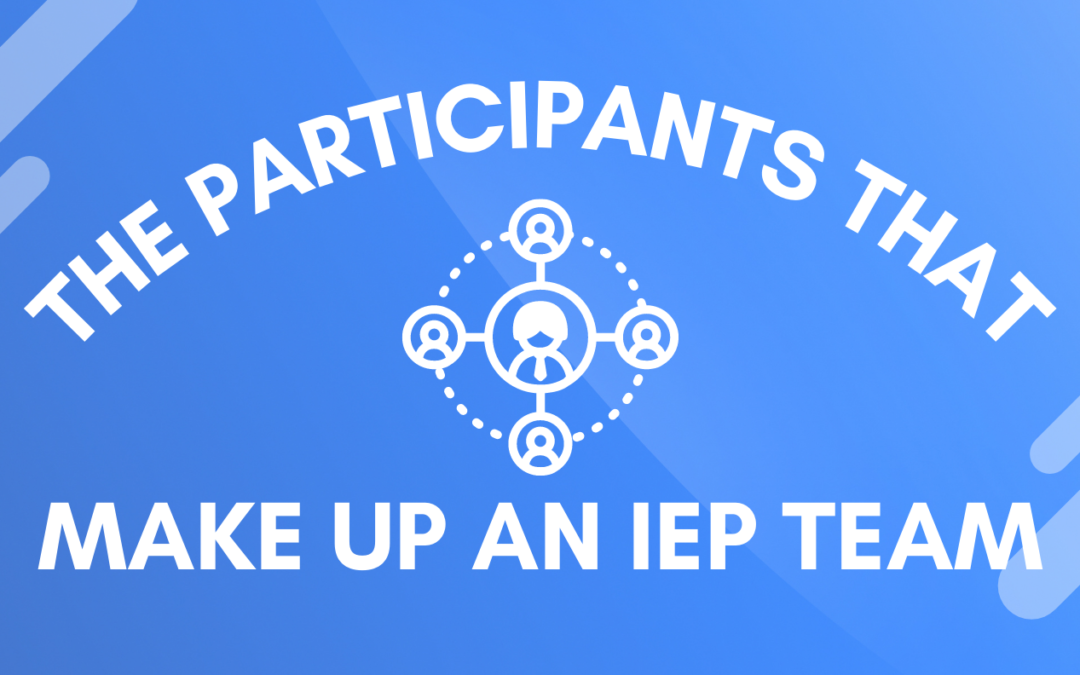The IEP team members are dictated by the Individuals with Disabilities Education Act. The IEP team
members must include the following persons.
- The parents of the child
- At least one regular education teacher
- At least one special education teacher
- A representative of the public agency/school district
- An assessor who can interpret an assessment that is being reviewed
- Other individuals that the parents or the school district believe have knowledge about
the student’s education needs - For IEP’s that contain Transition services the child with the disability must be invited
- The student whenever their presence is appropriate
Each of these members should be available and present for the student’s IEP meeting. However, it is important to note that this list is not rigid and can include other people and/or professionals who have
knowledge and special expertise about the student. If such a person is asked to participate, it is the responsibility of the IEP team member who is requesting their presence to show how the individual is
qualified as a person, or a professional, with knowledge and expertise about the child and their education.
It is also important to note that the language used to describe the attendance of one general education teacher, one special education teacher and an assessor who has the expertise to speak to an assessment
that the IEP team is reviewing, does not have to be the student’s specific general education teacher, special education teacher or the assessor who completed the assessment. The IEP team membership is
complete as long as the IEP team member who is representing the category of professional, is one. For example, an IEP team is complete if a speech and language pathologist is present to discuss the
assessment, even if it is not the speech and language pathologist who did the testing and generated the report. The team is also complete if any general education teacher is present, not necessarily the student’s general education teacher.
The requirement for a representative of the public agency/school district to be present has three particular criteria that must be met for this IEP team member to be considered present. It is important to note that a general education teacher, or another IEP team member, who meets these qualifications can be considered to represent two categories of a required IEP team member for purposes of having a complete IEP team. The qualifications include:
- Qualified to provide or supervise the specially designed instruction that is meant to meet the unique needs of students with disabilities
- Is knowledgeable about the general education curriculum
- Is knowledgeable about the resources available for students with special needs
More often than not the person representing the public agency/school district who meets these qualifications is the school principal or vice principal. It is possible that the student’s special education case manager also meets these qualifications and can act in this capacity.
Lastly, it is important to remember that the IEP team members are often fluid in their make-up. At one meeting the general education teacher might be the student’s actual classroom instructor. At a later meeting, the general education teacher might be someone else who does not necessarily have the student in their classroom. While this can be concerning for parents, it is important to remember that
fluidity in membership is not necessarily a legal violation.
Instead, the most important aspect of IEP team membership, is that all members that are required to be present, are in attendance. When all of the above IEP team members are present, the team is considered complete and the meeting meets the legal requirements for who must be present for an IEP meeting to commence.


Recent Comments